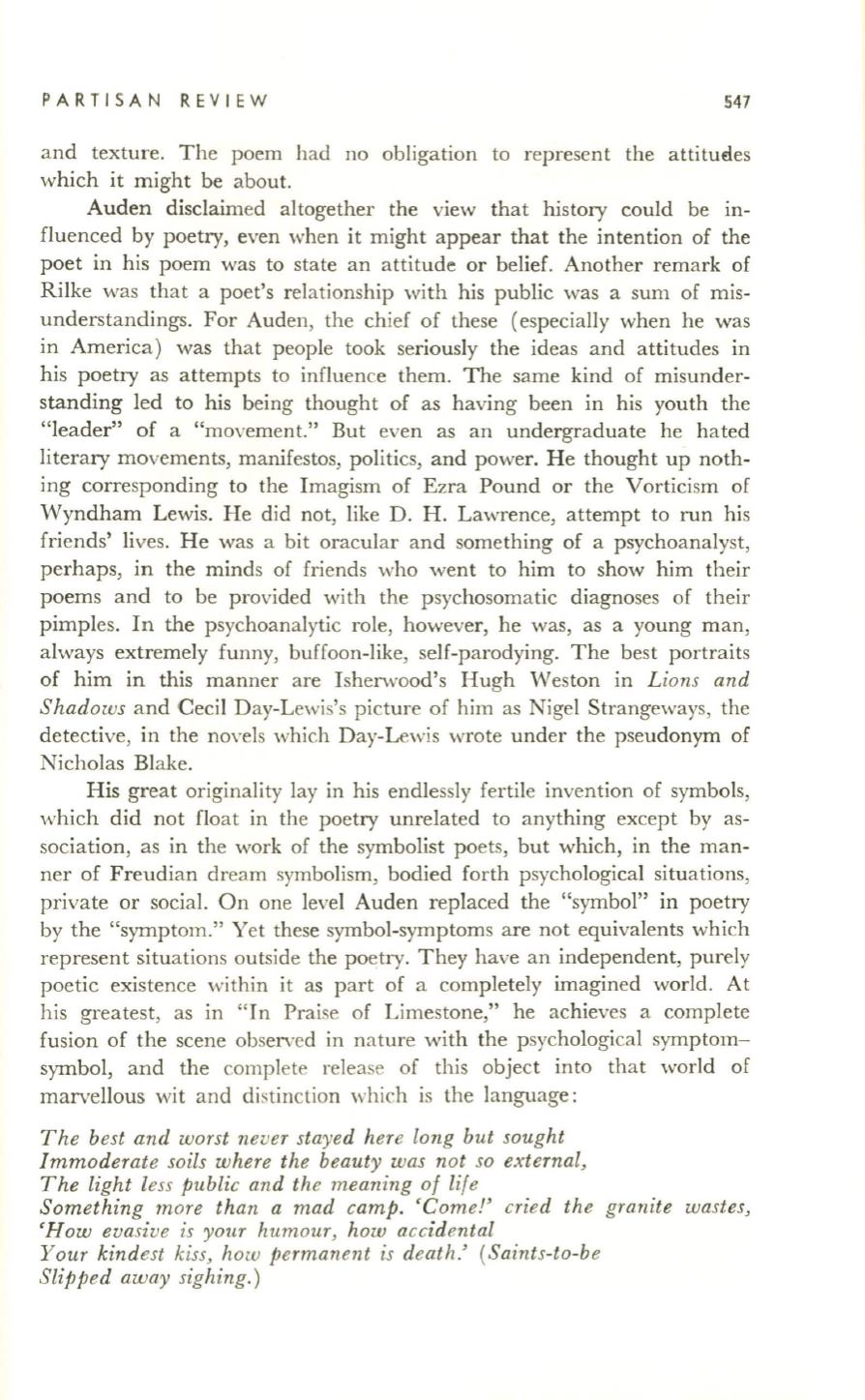
PARTISAN REVIEW
547
and texture. The poem had no obligation to represent the attitudes
which it might be about.
Auden disclaimed altogether the view that history could be in–
fluenced by poetry, even when it might appear that the intention of the
poet in his poem was to state an attitude or belief. Another remark of
Rilke was that a poet's relationship with his public was a sum of mis–
understandings. For Auden, the chief of these (especially when he was
in America) was that people took seriously the ideas and attitudes in
his poetry as attempts to influence them. The same kind of misunder–
standing led to his being thought of as having been in his youth the
"leader" of a "movement." But even as an undergraduate he hated
literary movements, manifestos, politics, and power. He thought up noth–
ing corresponding to the Imagism of Ezra Pound or the Vorticism of
Wyndham Lewis. He did not, like D. H. Lawrence, attempt to run his
friends' lives. He was a bit oracular and something of a psychoanalyst,
perhaps, in the minds of friends who went to him to show him their
poems and to be provided with the psychosomatic diagnoses of their
pimples. In the psychoanalytic role, however, he was, as a young man,
always extremely funny, buffoon-like, self-parodying. The best portraits
of him in this manner are Isherwood's Hugh Weston in
Lions and
Shadows
and Cecil Day-Lewis's picture of him as Nigel Strangeways, the
detective, in the novels which Day-Lewis wrote under the pseudonym of
Nicholas Blake.
His great originality lay in his endlessly fertile invention of symbols,
which did not float in the poetry unrelated to anything except by as–
sociation, as in the work of the symbolist poets, but which, in the man–
ner of Freudian dream symbolism, bodied forth psychological situations,
private or social. On one level Auden replaced the "symbol" in poetry
by the "symptom." Yet these symbol-symptoms are not equivalents which
represent situations outside the poetry. They have an independent, purely
poetic existence within it as part of a completely imagined world. At
his greatest, as in "In Praise of Limestone," he achieves a complete
fusion of the scene observed in nature with the psychological symptom–
symbol, and the complete release of this object into that world of
marvellous wit and di stinction which is the language:
The best and worst never stayed here long but sought
Immoderate soils where the beauty was not so external,
The light less public and the meaning of life
Something more than a mad camp. 'Come!' cried the granite wastes,
'How evasive is your humour, how accidental
Your kindest kiss, how permanent is death.' (Saints-to-be
Slipped away sighing.)


